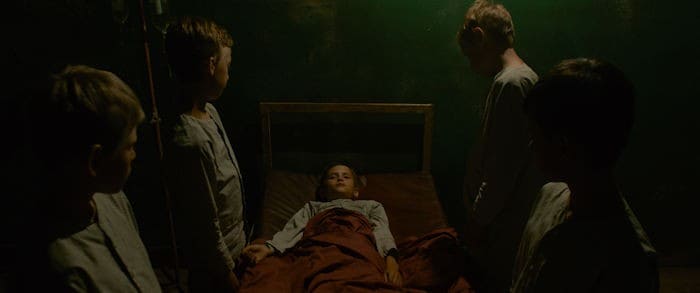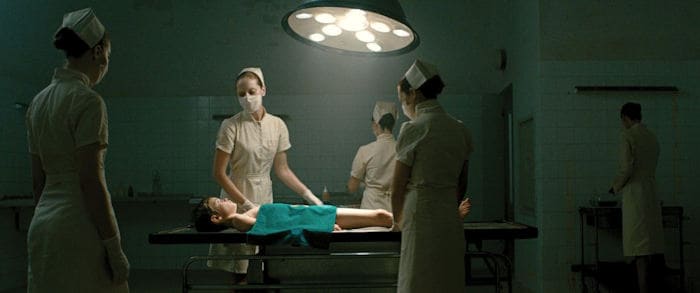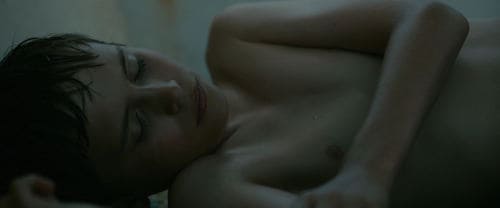 Reviewing Art-House cinema is not my vocation, even the art-house films that arguably belong to the Coming-of-Age genre. Yet I have attempted it before, with Terry Gilliam‘s bizarre short The Wholly Family. As I established in that review, one can’t help but agree that this type of film is capable of expanding the ways in which one sees the world. Kuba Czekaj‘s 2015 film Baby Bump is such a film – too wild, accurate, disturbing, confusing and messed up for me not to review here.
Reviewing Art-House cinema is not my vocation, even the art-house films that arguably belong to the Coming-of-Age genre. Yet I have attempted it before, with Terry Gilliam‘s bizarre short The Wholly Family. As I established in that review, one can’t help but agree that this type of film is capable of expanding the ways in which one sees the world. Kuba Czekaj‘s 2015 film Baby Bump is such a film – too wild, accurate, disturbing, confusing and messed up for me not to review here.
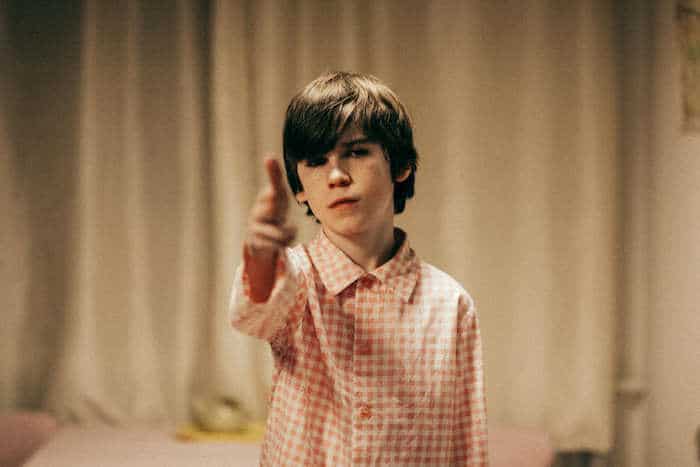
Mickey (Kacper Olszewski) is growing up. His body is changing, his thoughts go wild and all is up on the screen for us to see – close up, personal and explicit. If you have a puritanical mind, you are guaranteed to be offended – butts, tits, erections, vaginas, hair, blood and other body substances. The filmmakers do not spare anyone from the roller coaster like portrayal of…Coming-of-Age (growing up), while keeping one’s senses (or losing them on the way).
There is no consistent storyline to speak about, only a collage of experiences, thoughts and fantasies presented in a lavish manner. Utilizing modern cinematic techniques: split frames, vignettes ,CGI animations, rapid cut edits and intriguing sound and special effects, the filmmakers grasp the attention of the viewer. At times it’s shocking, provoking and, in my case, severely confusing (though after a while things start to make sense). All of the adjectives that I have used to describe the 2012 short film from Switzerland Hazel (Flamboyant, quirky, funny, provoking and original) also perfectly fit the Polish, Baby Bump.
It is not a coincidence that I have referred to two short films while reviewing Baby Bump. I genuinely believe that it would have been more effective as a short film than a full feature — thus sparing the viewers from a surrealistic overload (even though some people may love it just because of that).
The bluntness of the filmmakers in portraying Coming-of-Age experiences in this film reminded me of Kay Pollak‘s 1980 film Barnens ö (Children’s Island). I doubted that any director of the increasingly non-tolerant society that we live in, filled with non-genuine concerns blown out of proportion, would have the courage to portray growing up in such “in your face”, daring manner.

Due to the nature of the film, acting is hard to judge, yet Kacper Olszewski manages to be extremely cute and photogenic as Mickey in some scenes (shot in extreme close-ups), yet slightly repulsive in others. The film is about his character and told from his child`s perspective. It’s a character study of a kind, yet one focusing on the physiological and psychological changes that occurs for all of us when we leave our innocence behind.
I enjoyed the film, yet hesitate to whole heartily recommend it knowing that many audiences will find it way too provoking – even vulgar at times. The biggest drawback to me is the lack of a consistent narrative, which also makes the film unsuitable for repeated viewings (unless one decides to decipher the symbolism Baby Bump is filled with).
Official Trailer
http://www.imdb.com/title/tt5028892/combined

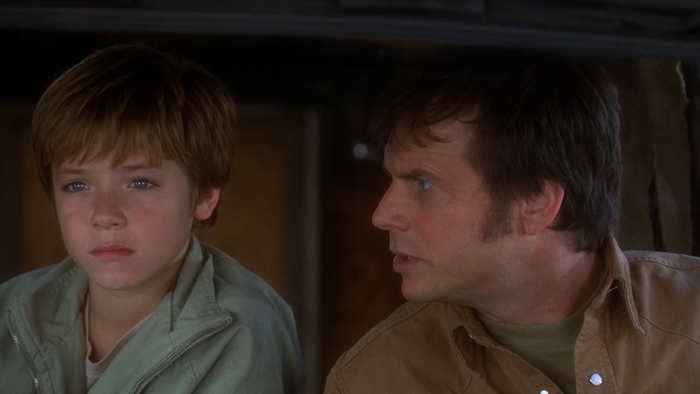
 There are many Coming-of-Age movies that focus on the first religious experiences of a young person. Looking for a film of that genre, I’m happy I chose Brian Faye‘s short film, Jeremy. The story focuses on a young boy whose personal circumstances are anything but favorable. He dwells in a trailer park alongside his lottery obsessed mother, her latest boyfriend and two older brothers – who like nothing better than to tease him.
There are many Coming-of-Age movies that focus on the first religious experiences of a young person. Looking for a film of that genre, I’m happy I chose Brian Faye‘s short film, Jeremy. The story focuses on a young boy whose personal circumstances are anything but favorable. He dwells in a trailer park alongside his lottery obsessed mother, her latest boyfriend and two older brothers – who like nothing better than to tease him.
 As suggested by the title, Glendyn Ivin’s 2009 Australian film Last Ride is essentially a Road movie with significant Coming-of-Age overtones.
As suggested by the title, Glendyn Ivin’s 2009 Australian film Last Ride is essentially a Road movie with significant Coming-of-Age overtones.

 The characterizations rely primarily on dialogue – the conversations between father and son reveal a great deal about their relationship in a surprisingly intimate manner. Hugo Weaving and Tom Russell manage to pull off good, credible performances.
The characterizations rely primarily on dialogue – the conversations between father and son reveal a great deal about their relationship in a surprisingly intimate manner. Hugo Weaving and Tom Russell manage to pull off good, credible performances.
 The Devil in the Skin (Original title: Le diable dans la peau) is a 2011 French Coming-of-Age drama telling the story of the strong bond between Xavier (Quentin Grosset) and his little brother Jacques (Paul François) and their struggle to remain together despite all odds. Directed by Gilles Martinerie, the film’s narrative and visuals are so cunningly crafted that watching it can be closely associated with an appreciation of a work of art.
The Devil in the Skin (Original title: Le diable dans la peau) is a 2011 French Coming-of-Age drama telling the story of the strong bond between Xavier (Quentin Grosset) and his little brother Jacques (Paul François) and their struggle to remain together despite all odds. Directed by Gilles Martinerie, the film’s narrative and visuals are so cunningly crafted that watching it can be closely associated with an appreciation of a work of art.
 By now, you’ve likely either seen, or had to provide a justification as to why you haven’t yet watched, the new Netflix drama, Stranger Things. The show, set in small-town Indiana in the 1980’s, tells the story of the strange circumstances surrounding the disappearance of a boy, and the search to find him.
By now, you’ve likely either seen, or had to provide a justification as to why you haven’t yet watched, the new Netflix drama, Stranger Things. The show, set in small-town Indiana in the 1980’s, tells the story of the strange circumstances surrounding the disappearance of a boy, and the search to find him.
 In The Year My Parents Went on Vacation, the parents of 12-year old Mauro (Michel Joelsas) are forced to flee Brazil in 1970, months before the World Cup, due to their opposition to the military dictatorship. The plan was for Mauro to be left in the care of his Jewish grandfather, but an unfortunate turn of the circumstances leaves the little boy stranded by himself in the working class Jewish neighborhood of Sao Paulo.
In The Year My Parents Went on Vacation, the parents of 12-year old Mauro (Michel Joelsas) are forced to flee Brazil in 1970, months before the World Cup, due to their opposition to the military dictatorship. The plan was for Mauro to be left in the care of his Jewish grandfather, but an unfortunate turn of the circumstances leaves the little boy stranded by himself in the working class Jewish neighborhood of Sao Paulo. The Year My Parents Went on Vacation is characterized by a predominately subjective point-of-view, as the story is told through the eyes of its young protagonist (he also narrates some scenes (to inform the viewer with information about his family). The glimpses into his life – from the little things like collecting cards of soccer players, to his boyish mischief, discoveries and reactions to people and events (for there are several intriguing plot twists) result in a candid, yet effective, portrayal of his personality.
The Year My Parents Went on Vacation is characterized by a predominately subjective point-of-view, as the story is told through the eyes of its young protagonist (he also narrates some scenes (to inform the viewer with information about his family). The glimpses into his life – from the little things like collecting cards of soccer players, to his boyish mischief, discoveries and reactions to people and events (for there are several intriguing plot twists) result in a candid, yet effective, portrayal of his personality.

 Have you ever wished that you had a double? You know, as some famous people do, so they can avoid exposure to unpleasant experiences?
Have you ever wished that you had a double? You know, as some famous people do, so they can avoid exposure to unpleasant experiences?


 This message of friendship and compassion is acutely embedded into the narrative of the 2014 short film Cedar Street, written and directed by Monica Graves. Yet despite the best of intentions, the story fails to strike an emotional note with the viewer, which is essential if one is to take the fate of the film’s protagonist to heart.
This message of friendship and compassion is acutely embedded into the narrative of the 2014 short film Cedar Street, written and directed by Monica Graves. Yet despite the best of intentions, the story fails to strike an emotional note with the viewer, which is essential if one is to take the fate of the film’s protagonist to heart.
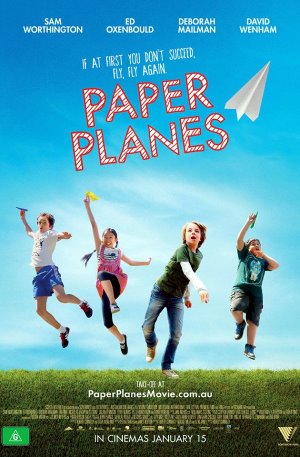 You`d better have some paper ready to fold as you start watching Robert Connolly`s 2014 movie Paper Planes. It stars
You`d better have some paper ready to fold as you start watching Robert Connolly`s 2014 movie Paper Planes. It stars 
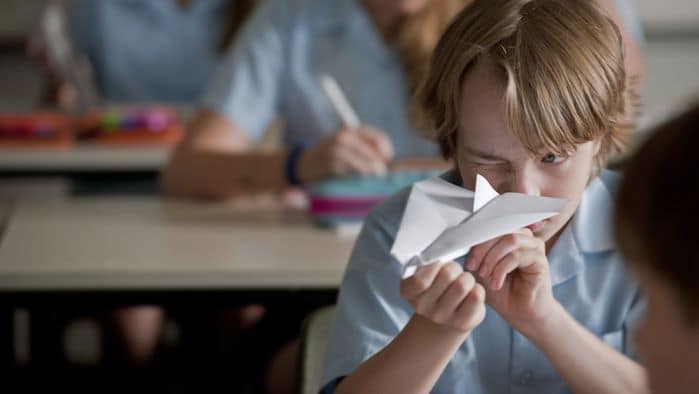

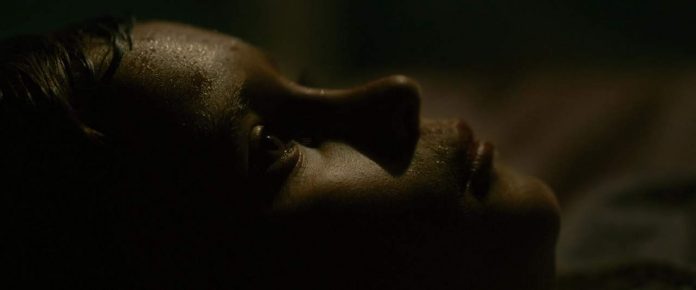
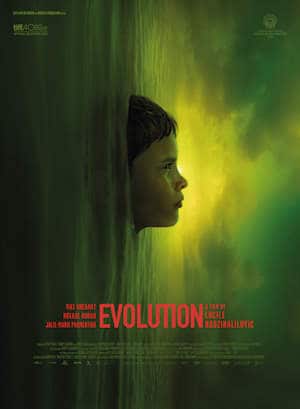 When I first came upon the trailer of Lucile Hadzihalilovic‘s film Evolution, I was really impressed by the stunning beauty of its visuals. The trailer also manages to reveal the Coming-of-Age focus of the narrative (thanks to the frequent scenes featuring the film’s main character — an 11-year-old boy), and a slightly nightmarish prevailing mood.
When I first came upon the trailer of Lucile Hadzihalilovic‘s film Evolution, I was really impressed by the stunning beauty of its visuals. The trailer also manages to reveal the Coming-of-Age focus of the narrative (thanks to the frequent scenes featuring the film’s main character — an 11-year-old boy), and a slightly nightmarish prevailing mood.
